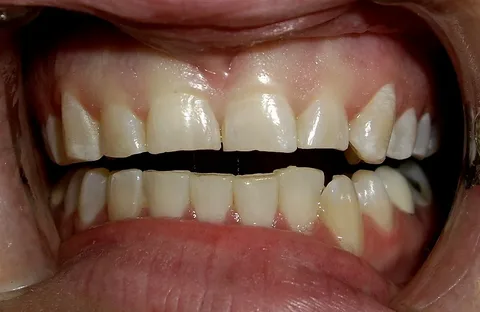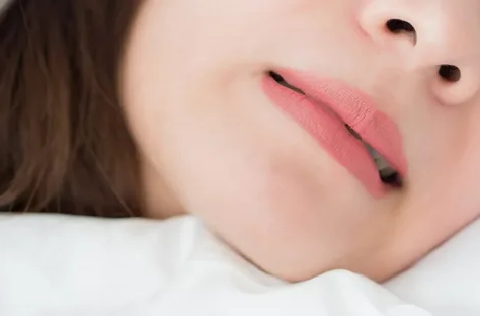TREATMENTS
Night Grinding Treatment in Lahore
Night Grinding

- Functional Impairment
- Aesthetic Concerns
- Speech Difficulties
- Preventing Tooth Migration
- Preserving Bone Health
- Improving Oral Health
- List Item #1
- List Item #2
- List Item #3
Types Of Night Grinding

Primary Bruxism
Primary bruxism refers to the condition where teeth grinding or clenching occurs without any apparent underlying medical or dental cause.

Secondary Bruxism
Secondary bruxism is linked to identifiable factors, such as medical conditions or the use of certain medications.

Awake Bruxism
Some individuals may exhibit teeth grinding or clenching during waking hours, often in response to stress or tension.

Sleep Bruxism
Sleep bruxism occurs specifically during sleep, and individuals may be unaware of the behavior unless they experience symptoms such as jaw pain or tooth sensitivity.
CAUSES OF GUMS DEPIGMENTATION
Night grinding is a multifactorial condition with various causes and potential consequences. Early diagnosis, intervention, and preventive measures can help manage symptoms, protect oral health, and improve overall quality of life. Individuals experiencing symptoms of night grinding should consult with a dentist or healthcare professional for a thorough evaluation and appropriate management strategies
Stress and Anxiety
Psychological factors, such as stress and anxiety, are often linked to bruxism.
Sleep Disorders
Bruxism is sometimes associated with certain sleep disorders, such as sleep apnea.
Medications
Some medications, particularly those affecting the central nervous system.
Lifestyle Factors
Consumption of stimulants (caffeine, nicotine), alcohol, or recreational drugs can contribute to night grinding.
Night Grinding
Symptoms of Night Grinding
- Morning Jaw Pain
- Headaches
- Earaches
- TMJ Disorders
- Disrupted Sleep
- Facial Pain
How To Take Care Missing Teeth
Taking care of your oral health, especially when you have missing teeth, is important to prevent complications and maintain overall well-being. Here are some tips on how to care for missing teeth:
Floss Regularly: Floss between your remaining natural teeth and around dental appliances to remove plaque and prevent gum disease. If you have dental bridges or implants, use floss threaders or interdental brushes for effective cleaning.
Use an Antiseptic Mouthwash: Rinse your mouth with an antiseptic or fluoride mouthwash to help control bacteria and maintain oral hygiene. Consult your dentist for recommendations based on your specific needs.
Visit Your Dentist Regularly: Schedule regular dental check-ups, even if you have missing teeth. Your dentist can monitor the health of your remaining teeth, assess your gum health, and address any concerns promptly.
Consider Dental Appliances If you have missing teeth, your dentist may recommend dental appliances such as bridges, dentures, or implants to restore function and aesthetics. Follow your dentist’s instructions for care and maintenance of these appliances.
FAQs
Bruxism is a condition characterized by the grinding or clenching of teeth, especially during sleep, leading to potential oral health issues.
Common symptoms include jaw pain, headaches, tooth sensitivity, and excessive wear on the teeth.
Bruxism can be caused by stress, anxiety, misaligned teeth, sleep disorders, or certain medications.
Diagnosis involves a dental examination, discussion of symptoms, and, in some cases, monitoring jaw and muscle activity during sleep.
Yes, bruxism can cause dental issues such as tooth wear, fractures, and damage to dental restorations.
A night guard is a dental appliance that helps protect teeth from the effects of grinding by providing a cushioning barrier.

